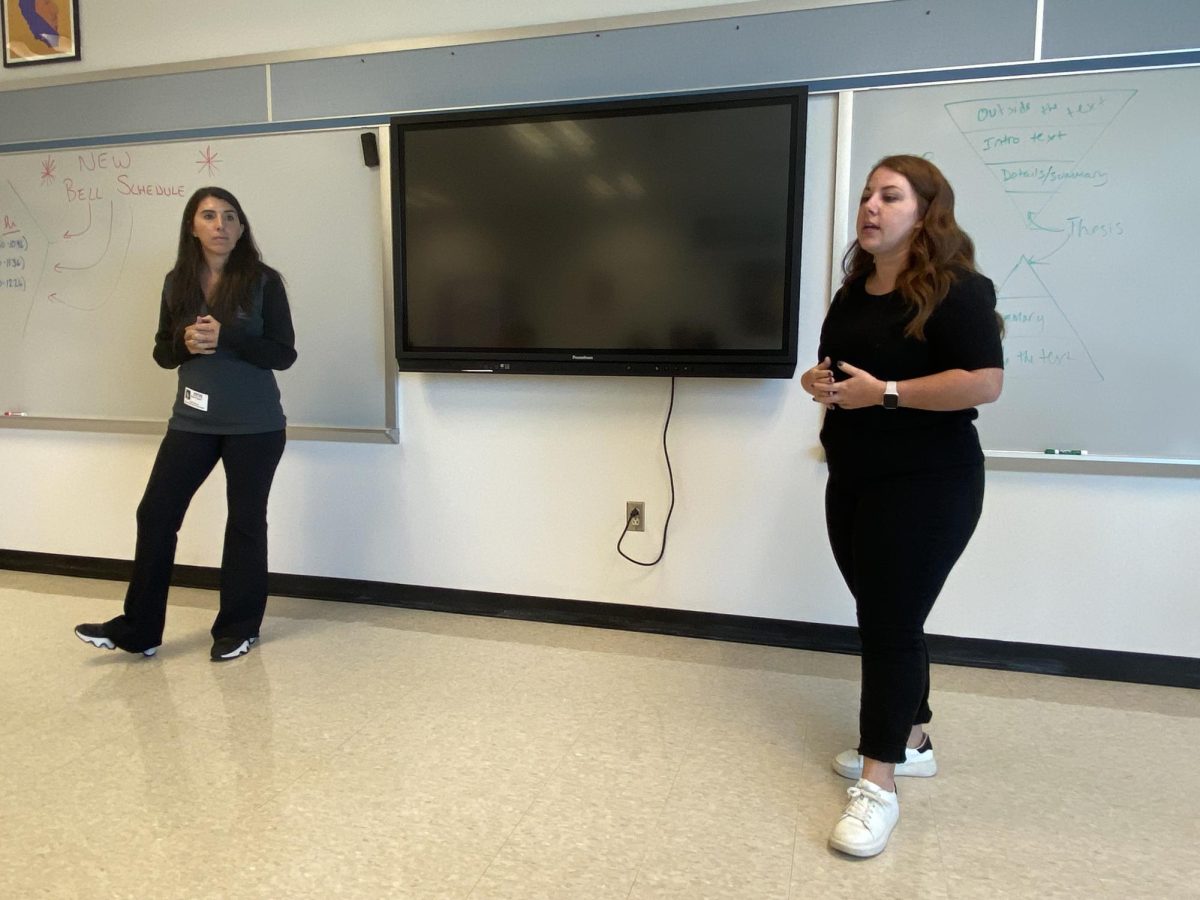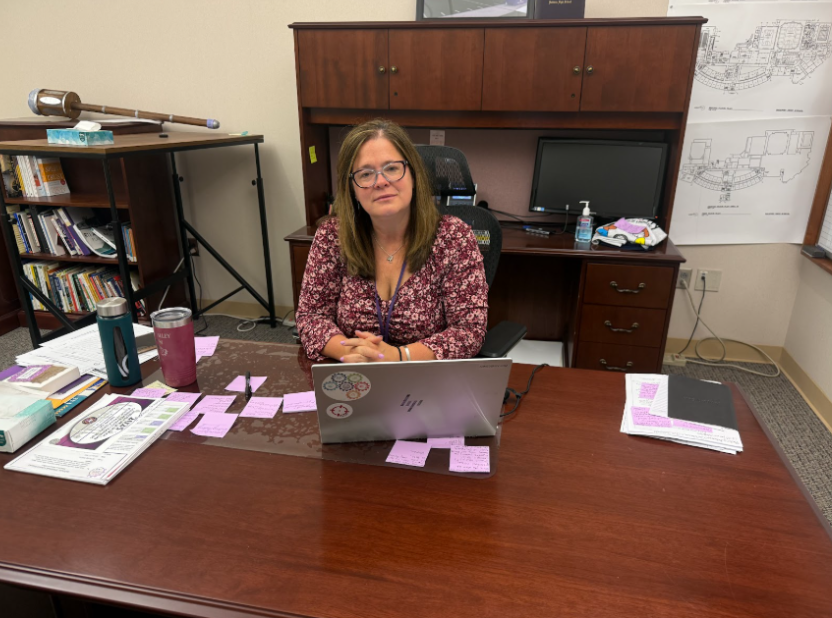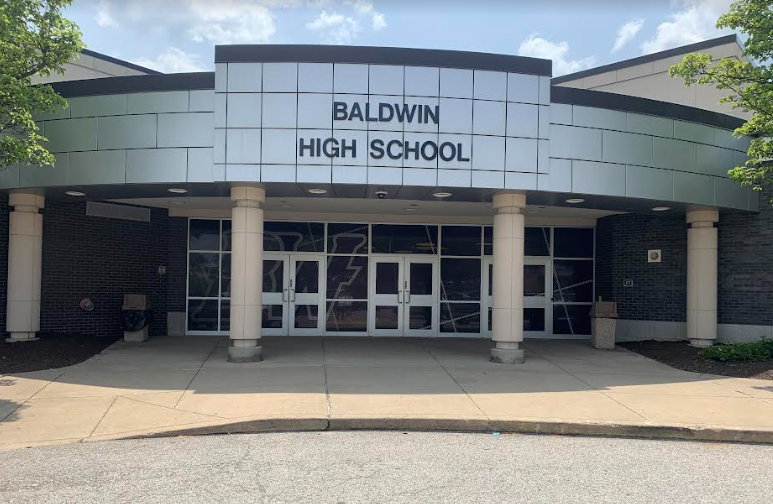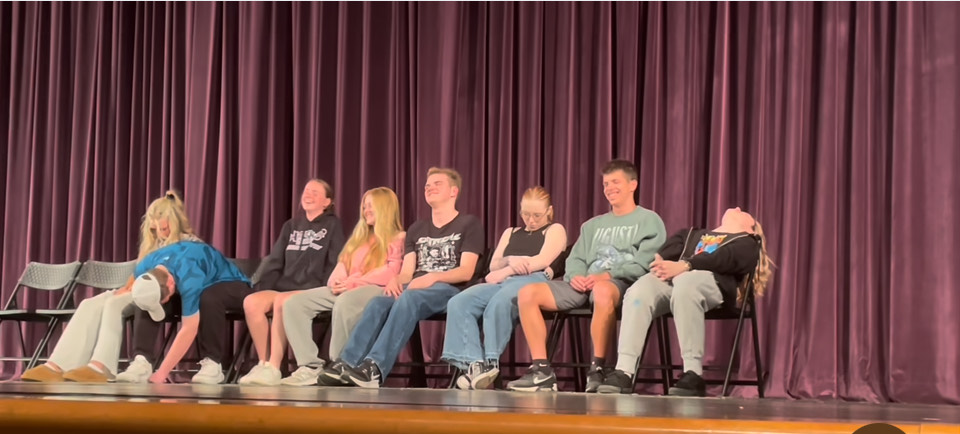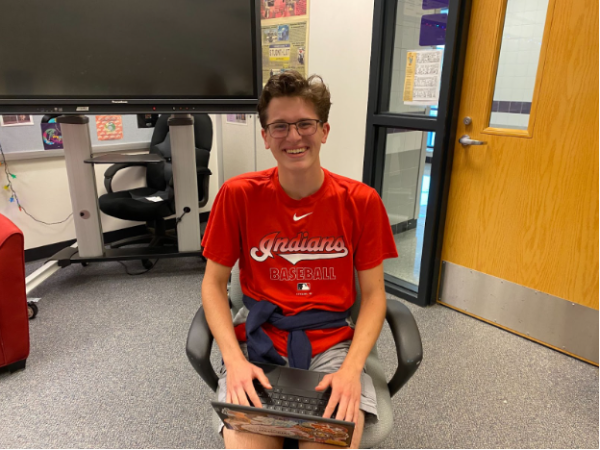Since fifth grade, students have been lectured about the importance of online safety. Terms like “digital footprint” and “catfishing” have become cultural buzzwords. But rarely have students heard, directly from an FBI agent, how authorities track down online accounts.
Felicia Trovato and Jenna Holt, both of whom work for the FBI, spoke to the Media Literacy class on this very subject on Wednesday. The Media Literacy course seeks to educate students on identifying misinformation, being responsible online, and being on guard against nefarious actors.
During the presentation, Holt described a situation involving a male high school student. The student had a lackluster Instagram presence, but his girlfriend had a much more active page. She tagged him in almost all of her posts, indirectly revealing crucial details of his life. This trail could be followed to the male student’s Facebook page, on which his girlfriend was his only Friend. His Facebook page included a TikTok video detailing delinquent behavior that would have had the student ousted from almost any university or job program.
The dangers extend beyond inappropriate behavior, though.
“Be careful what (you) post. …watch your political opinions,” Trovato said, suggesting that a person’s most controversial comments can be taken out of context and used against them.
For English teacher Jason Dolak, who co-teaches the Media Literacy course with history teacher Adam Foote, bringing in the FBI agents was a no-brainer.
“I think just looking at our course, Media Literacy, we felt like having some people who actually work in the field, who are professionals, who can better represent what’s happening out there in the real world to our students, was going to be a positive thing,” Dolak said.
The course touches on numerous topics that are of especial primacy in the age of social media, like misinformation, fake identities, and conspiratorial thinking. Trovato touched especially on fake identities, citing the term “social engineering.”
“Anyone can use social engineering tactics,” Trovato said. Social engineering, in her words, is the practice of assuming a false identity to gain someone’s trust online. The tactic is often used by sexual predators and other bad actors.
Senior Raven Spano, a student in the class, said the presentation was beneficial.
“Not everything on the Internet is true, because we talked about how people pretend to be other people,” Spano said.
For Dolak, online responsibility is an essential skill – one that he hopes to instill in his students.
“We’ve researched some different conspiracy theories, and we’re trying to decide not just ‘are they true or not true?’ We’re not just trying to debunk, but we’re trying to see how they were spread.”
Dolak hopes that students can use the Internet properly without despairing of it entirely.
“Be skeptical but not cynical.” Dolak said. “You want to have an understanding of where things are coming from.”

